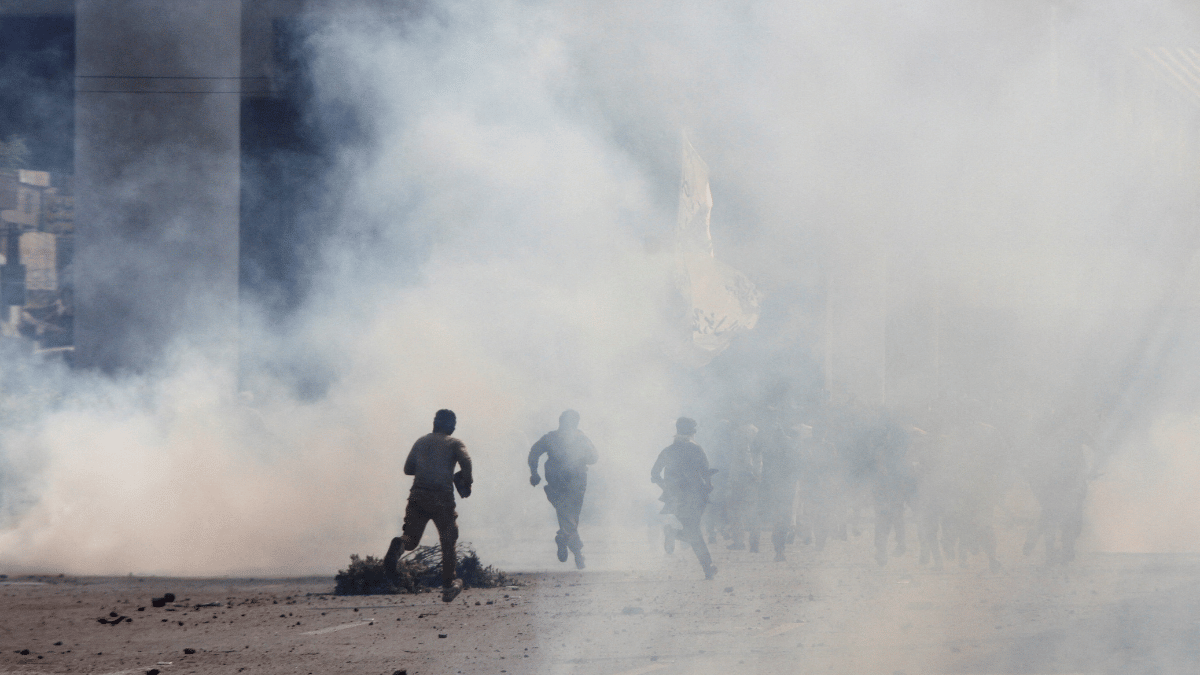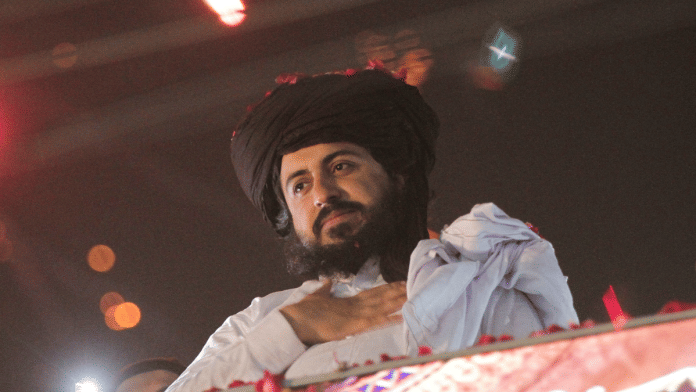New Delhi: Fourteen years ago in Pakistan, an influential man decided to protect a Christian woman from false accusations of blasphemy. Just for supporting her, his bodyguard shot him dead in broad daylight at an Islamabad market. The influential man was none other than Salman Taseer, the 34th Governor of Punjab.
The perpetrator, Mumtaz Qadri, was hailed as a hero among a large section of the hardliner Pakistani masses. Countless protests were staged throughout Pakistan to protect the so-called ‘Ghazi’ (warrior of the faith).
A heavy presence of forces was ensured to prevent the protest from turning into riots. But the justice took its due course, and Qadri was hanged in 2016. The pronouncement of execution disheartened many, but a Barelvi cleric took it on a mission to demand even stricter enforcement of the blasphemy laws. He was Khadim Hussain Rizvi, the founder of Tehreek-e-Labbaik Pakistan (TLP).
Now, Rizvi’s son and TLP head Saad Rizvi has been arrested in Lahore after protests in Karachi and other cities. Punjab, the most populous province in Pakistan, remains on the edge after the clash of the far-right organisation with the police over its support to Palestine as well as condemnation of the American support for Israel.
At least one police officer and three protesters were killed Monday as TLP members clashed with the security personnel during their protest against Israel over the war on Gaza. The TLP claims over 250 of its workers have been killed and more than 1,500 injured, so far.
The Punjab government, led by Chief Minister Maryam Nawaz, has moved the National Assembly seeking a ban on the TLP. The Imran Khan government had banned the TLP in 2021, only to remove it from the list of banned outfits after a few months.
ٹی ایل پی بلوائیوں کے قائد سعد رضوی کے گھر سے کروڑوں روپے اور سونے کی اینٹیں برآمد۔۔۔ pic.twitter.com/YXU0ScBsAJ
— Government of Punjab (@GovtofPunjabPK) October 14, 2025
Ever since it was established in 2015, the Tehreek-e-Labbaik Pakistan has been often in the news, be it for the campaign against Pakistani-American economist and Ahmadi intellectual Atif Mian in 2018, the sit-ins against the acquittal of Aasia Bibi (who was accused of blasphemy) in 2018, or the protest against French President Emmanuel Macron in 2020.
What cannot be dismissed is TLP’s political heft as well, given that it garnered third highest vote percentage in the 2018 Pakistan general elections behind the Pakistan Muslim League (Nawaz), or the PML (N), and the Pakistan Peoples Party, or the PPP.
ThePrint takes a look at the initial years and the activities of the far-right Islamist group that has repeatedly brought Pakistan to a standstill in the recent years.
Also Read: Pakistan has a new export—Tehreek-e-Labbaik ‘ghazis’, ‘saints’ with the dagger of blasphemy
The beginning & growth
Way back in 2010, Saad Rizvi’s father and hardline religious leader Khadim Hussain Rizvi was removed from his government job as a preacher in protest against Taseer’s call for reforming the blasphemy laws. Later, he came out in support of Qadri, who sprayed bullets on Salman Taseer on 4 January, 2011 in Islamabad.
That chapter marked the beginning of far-right religious outfit Tehreek-i-Labbaik Ya Rasool Allah Pakistan (TLYRAP), which took a hard stance on cases related to blasphemy. This was reflected again in the protest over change in the electoral oath in 2017. Rizvi’s supporters had blocked a highway into Islamabad for three weeks. The stalemate was broken following the resignation of Pakistan law minister Zahid Hamid.
In 2017, the TLP was registered as a political party by the Election Commission of Pakistan (ECP). In its electoral debut in 2018, the party sprung a surprise by garnering nearly 2.19 million votes, equivalent to 4-5 percent of the total votes in Pakistan. Though it did not win any seat in the National Assembly, it won two seats from Karachi in Sindh province.
The 54-year-old Rizvi died at Lahore in 2020, following which his son Saad Hussain Rizvi took over as the second Ameer (leader) of the TLP. He has now gone on to become a divisive force in the country.
Charlie Hebdo & thereafter
In 2020, the satirical French magazine Charlie Hebdo created ripples after it reprinted caricatures of the Prophet Muhammad. In Pakistan, the TLP supporters clashed with the police and vowed to have the French ambassador expelled from the country over “blasphemous” cartoons published in a satirical French magazine.
Protests were staged in various cities calling for a boycott of French products and the expulsion of the French ambassador. Violence erupted in Lahore, Karachi, and Islamabad. As a result, the Pakistan government arrested Saad Rizvi and banned the TLP.
Despite the ban, TLP yet again organised a long march to Islamabad to free their leader. Imran Khan’s government was ready to use brute force, but the Pakistan Army intervened and mediated a secret pact. The pact culminated in the release of Saad Rizvi and TLP workers as well as revocation of the ban.
This chapter was seen as the start of a brewing comradeship between the army and the TLP. It also led to the talks of the TLP emerging as a proxy against the civilian government in Pakistan, where the army has often staged coups or orchestrated indirect manipulation.

As the neighbouring country remains on the brink over the TLP’s pro-Palestine stance, the Punjab police lodged nearly two dozen FIRs against Saad Rizvi and his supporters.
The TLP chief, his brother Anas Rizvi and several senior leaders have been booked on serious charges, including incitement of hate. On its part, the TLP is going to convene another march on 17 October, at Lahore’s Data Dadar Shrine, as part of its ongoing pro-Palestine protest campaign.
Vaibhav Pant is an alumnus of ThePrint School of Journalism, currently interning with ThePrint.
(Edited by Tony Rai)
Also Read: PoK burns with anger against Pakistani state. You won’t see it in Kashmir-obsessed Western media






